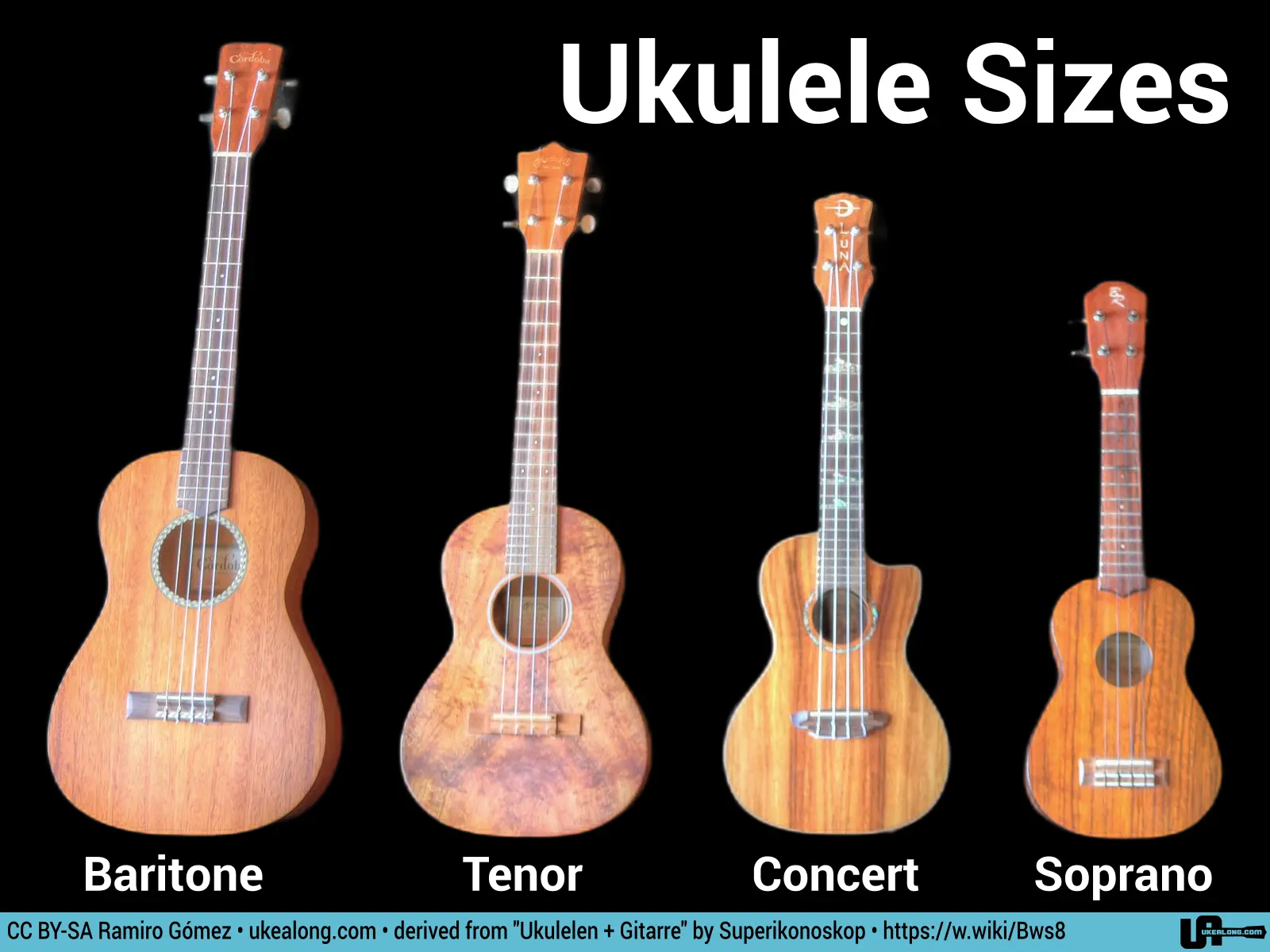Choosing Your First Ukulele: A Guide for Beginners
Choosing the right ukulele is crucial for a joyful and fulfilling learning experience. With so many options available, finding the perfect fit can feel overwhelming. This guide will help you navigate the basics to make an informed decision when purchasing your first ukulele.
Understanding Ukulele Types and Sizes
Ukuleles come in a variety of sizes, each offering a unique sound and feel. Your choice will affect your playing experience and the type of music you can produce.

Soprano
At about 21 inches long, the soprano ukulele is the smallest and most traditional size. It delivers a bright, cheerful tone that many associate with the classic Hawaiian sound. Its compact size makes it ideal for beginners, particularly younger players or those with small hands. However, the smaller fretboard can pose challenges for individuals with larger hands, requiring more precision when positioning fingers on the strings.
Concert
Slightly larger than the soprano, the concert ukulele measures around 23 inches. It offers more room on the fretboard, providing a comfortable playing experience for a variety of hand sizes. The concert ukulele also delivers a richer, fuller sound, making it a popular choice for those who find the soprano too snug or want a slightly more robust tone.
Tenor
At approximately 26 inches, the tenor ukulele produces a deeper, more resonant sound. This size is perfect for beginners with larger hands or those interested in exploring more complex musical arrangements. The tenor's expanded fretboard offers increased versatility, making it a favorite among performers and those who see themselves advancing in their ukulele journey.
Baritone
The baritone ukulele, the largest at about 30 inches, is tuned like the top four strings of a guitar. While it provides a rich, deep tone, its distinct tuning and size are not typically recommended for absolute beginners. However, it can be a great option for guitar players transitioning to the ukulele or for those interested in a unique sound.
Selecting the Right Material
The material of your ukulele significantly influences its sound quality and durability. Different woods bring various tonal characteristics and can affect your playing experience.
Mahogany
Popular for its warm, balanced tone, mahogany is an excellent choice for beginners. It's known for its durability and affordability, providing a balanced, mellow sound that is forgiving to new players.
Koa
Koa is a traditional Hawaiian wood known for its rich, sweet sound and stunning appearance. While it offers exceptional quality and is favored by experienced players, it tends to be more expensive and less common among beginners due to its cost.
Spruce
Primarily used for the top (soundboard) of the ukulele, spruce delivers a bright, punchy sound. When paired with different woods for the body, it can enhance the instrument's tonal range, providing dynamic sound possibilities.
Laminate vs. Solid Wood
Laminate ukuleles are budget-friendly and less sensitive to humidity fluctuations, making them ideal for beginners. Though generally less resonant than solid wood models, they provide a reliable start. Solid wood ukuleles offer superior sound quality and warmth but require more care and a higher financial investment.
Budget Considerations
Establish a realistic budget that balances quality and cost. While it might be tempting to select the cheapest option available, investing a bit more can greatly enhance sound quality and playability, significantly enriching your learning experience.
Brand and Quality
Research brands known for producing reliable beginner ukuleles. Reading reviews and seeking recommendations from experienced players or instructors can provide valuable insights and ensure you choose a ukulele that suits your needs.
Playability and Comfort
Your ukulele should feel comfortable to hold and play. Pay attention to aspects like the action (the height of the strings from the fretboard) to avoid unnecessary strain or discomfort while playing. I highly recommend that you visit a music store to test different models and ensure the one you choose feels and plays well.
Aesthetic Appeal
While functionality takes precedence, the design and appearance of your ukulele can inspire practice and create a personal connection with the instrument. Choose a style that resonates with you and reflects your personality, motivating you to play and enjoy your musical journey.
Essential Accessories
Consider purchasing essential accessories like a tuner, a gig bag for protection, and spare strings. These tools help maintain your ukulele's sound quality and ensure you're always ready to play. A strap, a stand or wall mount, and a string winder can also be valuable additions, providing comfort and convenience.
Conclusion
By considering these factors, you'll be well on your way to selecting a ukulele that not only meets your practical needs but also brings you joy. Embarking on your ukulele journey with the right instrument sets a positive tone for your musical development. Happy playing!

